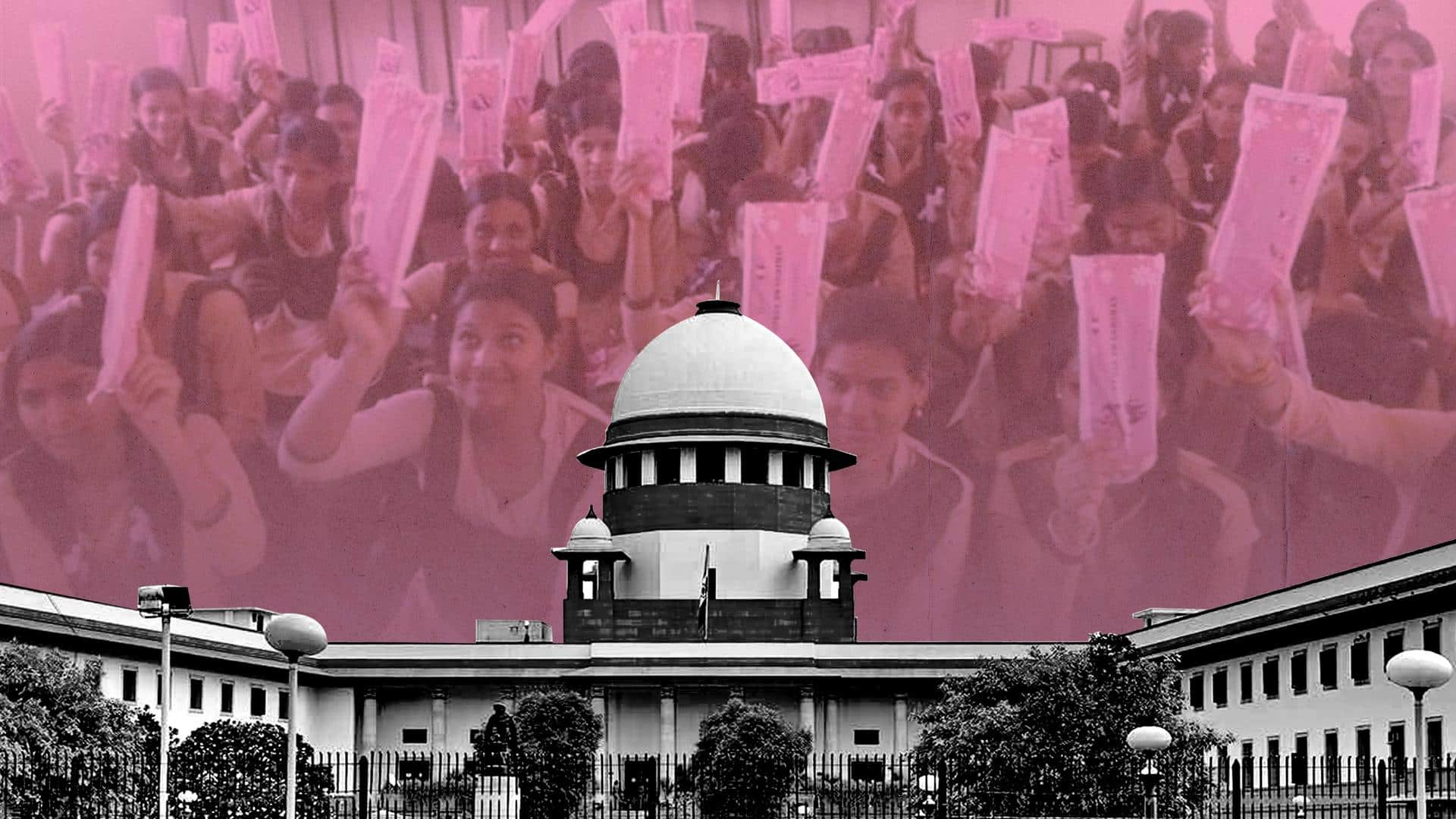
Sanitary pads in schools: A positive step toward menstrual health
What's the story
Menstrual health has long been a taboo topic in India, resulting in limited access to menstrual hygiene products and proper education for young girls and boys. However, in a progressive move towards ensuring proper menstrual hygiene from a young age, the Supreme Court of India has directed the Centre to create a national policy for schools. Here's what the Supreme Court's directives stated.
Status report
SC sought status reports from states
The apex court has recognized menstrual hygiene as a crucial national health issue and has requested status reports from all states regarding the provision of low-cost sanitary pads through vending machines to adolescent schoolgirls. The court has also asked for information on the ratio of toilets to the girl student population in both residential and non-residential educational institutions.
Free distribution
The policy must ensure free distribution of sanitary napkins: SC
The bench consisting of CJI DY Chandrachud, Justice PS Narasimha, and Justice JB Pardiwala stated that the policy must ensure free distribution of sanitary napkins in government schools. Additionally, schools must have safe disposal mechanisms, and there must be separate toilets for girls in all government schools. This directive is a significant step towards promoting menstrual hygiene and breaking the taboo surrounding menstruation.
Funding
For this, the Centre has sanctioned Rs. 197 crore
The Additional Solicitor General, Aishwarya Bhati, informed the court that although health and education are state subjects, the Centre has sanctioned Rs. 197 crore to ensure menstrual hygiene in schools. This move shows the government's commitment to promoting menstrual hygiene products for girls and women in the country. The funds will aid states in implementing SC's directives for menstrual hygiene in government schools.
Health risks
Unhygienic menstruation puts girls' overall health at risk
Poor menstrual hygiene practices can lead to serious health risks like reproductive and urinary tract infections. These infections can result in future infertility and birth complications. The lack of access to proper sanitary products, clean water, and private toilets can exacerbate these health risks. This may lead to absenteeism from school and a significant impact on a girl's education and social life.
UNICEF
Half of the schools in low-income countries lack menstrual hygiene
According to the United Nations Children's Fund (UNICEF), about half of the schools in low-income countries lack access to basic necessities like clean drinking water, sanitation, and hygiene during their periods. This can lead to girls missing school and falling behind in their studies. To prevent this, UNICEF recommends all schools must provide running water and clean toilets for adolescent girls.
Healthy habits
Encouraging healthy habits
Menstruation is a natural process that deserves proper attention. Unfortunately, many girls lack complete knowledge about it. That's why it's important to educate girls, and especially boys, about it. This way, their confidence gets a boost and they learn to inculcate healthy habits. Providing information about menstruation early on at home and schools can help to build social solidarity around the subject.